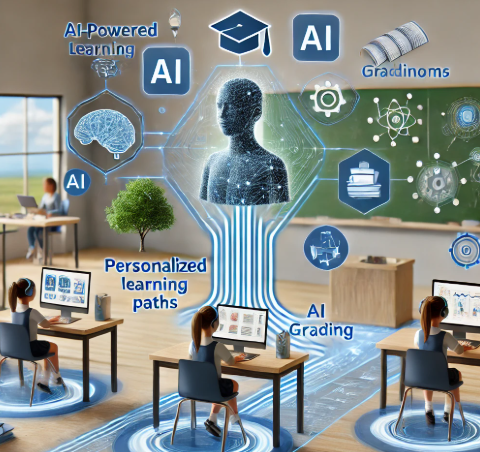Artificial Intelligence (AI) is reshaping the educational landscape, and experts from academia, technology, and policy sectors have shared diverse insights on its impact, potential, and challenges.
1. AI as a Tool for Personalized Learning
Many education specialists emphasize AI’s ability to customize learning experiences.
Dr. Rose Luckin, a professor of learner-centered design, highlights that AI can adapt content in real time, helping students learn at their own pace and style.
This personalization improves engagement and outcomes, especially for diverse learner groups.
2. Supporting Teachers, Not Replacing Them
Experts widely agree that AI is meant to augment educators rather than replace them.
Sal Khan, founder of Khan Academy, believes AI tools can handle routine tasks such as grading or content delivery, freeing teachers to focus on mentorship and critical thinking.
This partnership between AI and teachers can create more effective classrooms.
3. Ethical and Privacy Concerns
Leading voices caution about data privacy and ethical use of AI in education.
Dr. Neil Selwyn, a professor of education technology, warns that without proper safeguards, AI can risk student data security and reinforce inequalities.
Experts call for transparent policies and responsible AI development.
4. Enhancing Accessibility and Inclusion
Many experts applaud AI’s potential to make education more inclusive.
Tools like speech-to-text and translation apps help students with disabilities or language barriers participate fully in learning.
This broadens educational access globally.
5. Preparing Students for the Future
AI proponents stress that integrating AI into education prepares students for an AI-driven workforce.
By learning alongside AI, students develop digital literacy and problem-solving skills critical for tomorrow’s jobs.
6. Challenges in Implementation
Despite the promise, experts acknowledge hurdles such as high costs, lack of infrastructure, and teacher training gaps.
They urge policymakers to invest in resources and professional development for successful AI adoption.
Conclusion
Experts agree that AI has transformative potential in education but emphasize the importance of ethical use, teacher collaboration, and equitable access.
By addressing challenges proactively, AI can enhance learning experiences and outcomes for students worldwide.







Leave feedback about this